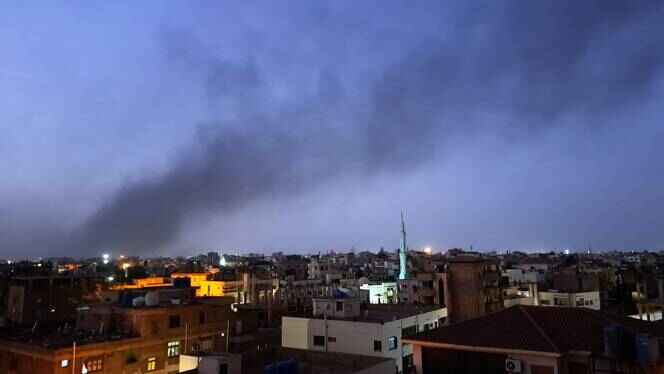At least 27 individuals have died in recent combat between the Sudanese army and paramilitaries, which has devastated El-Fasher.
The important Darfur town of El-Fasher saw a resurgence of fighting between the Sudanese army and opposing paramilitaries earlier this week, the UN reported on Sunday, killing at least 27 people in a single day.
Witnesses have reported artillery fire, machine gun fights, and airstrikes pummeling the city since Friday, when the UN estimates that an hours-long struggle resulted in the displacement of 850 people.
Along with the nearly complete communications blackout in the city, which makes it difficult for human rights advocates and medics to get word out to the public, it also killed at least 27 people that day, according to what the UN described as “unconfirmed reports”.
AFP was informed by a resident that “houses on fire” had been left by artillery bombardment and airstrikes during the ongoing conflict, which was reported by witnesses on Sunday.
A military air strike close on Saturday resulted in the deaths of two children and a caregiver in an intensive care unit, according to the French medical charity Doctors Without Borders (MSF).
Sudan has been embroiled in a bloody conflict since April of last year between the paramilitary Rapid Support Forces (RSF), led by Abdel Fattah al Burhan, the de facto leader of the nation, and his former deputy, Mohamed Hamdan Dagalo.
Four of the five state capitals in Darfur, which is home to about 25% of Sudan’s 48 million inhabitants and is roughly the size of France, have been taken over by the RSF.
The final large Darfuri city outside of RSF authority is El-Fasher. The United States and the United Nations, among others, have been alerting the world for weeks about an impending attack on the metropolis.
Children murdered in intensive care unit
According to MSF, the army, which has a functional monopoly over the skies, carried out an airstrike that fell 50 meters (164 feet) away from the Babiker Nahar Paediatric Hospital on Sunday.
It resulted in “the death of two children who remained receiving treatment there, as well as the death of at least one caregiver,” according to a statement. It also caused the hospital’s roof to collapse.
Michel-Olivier Lacharite, head of emergency operations at MSF, stated, “The children who were killed were in a critical condition in our ICU, but their lives could have been saved.”
According to the UN, the conflict has thrown over 70% of Sudan’s hospitals out of operation, exacerbating the country’s already dire health conditions.
In addition to regularly looting hospitals and converting them into barracks, fighters have attacked medical staff and obstructed the delivery of medical supplies.
Lacharite continued, “115 children were receiving treatment in this hospital — now no one is,” referring to the fact that many patients had fled to the sole hospital still standing in the city, El-Fasher Southern Hospital, which is located nearby.
According to an insider at the hospital, “the morgue had become completely full of bodies” on Friday, as reported by AFP.
The hospital, which the UN claims only has “a 100-bed capacity,” reportedly welcomed “160 wounded people — including 31 women and 19 children,” according to MSF.
“During the fighting, the hospital did not have an ambulance to transport the injured people and it has limited medical equipment and medicines needed to treat the injured and no surgical supplies,” the United Nations stated in a statement on Sunday.
Fears of “a disaster of epic proportions” if the warring sides invade the city in full force have been escalating for weeks.
El-Fasher’s once precarious peace had made it a major center for relief and displaced persons, benefiting the remainder of Darfur, where the UN estimates that 1.7 million people are in danger of starvation.
There are 1.5 million people living in the city, including roughly 800,000 who were displaced during this and other conflicts.
Tens of thousands of people have died, millions have gone without food, and more than 8.7 million people have been uprooted from their homes in Sudan as a result of the conflict—more than any other place in the world.
SOURCE: TRTWORLD






